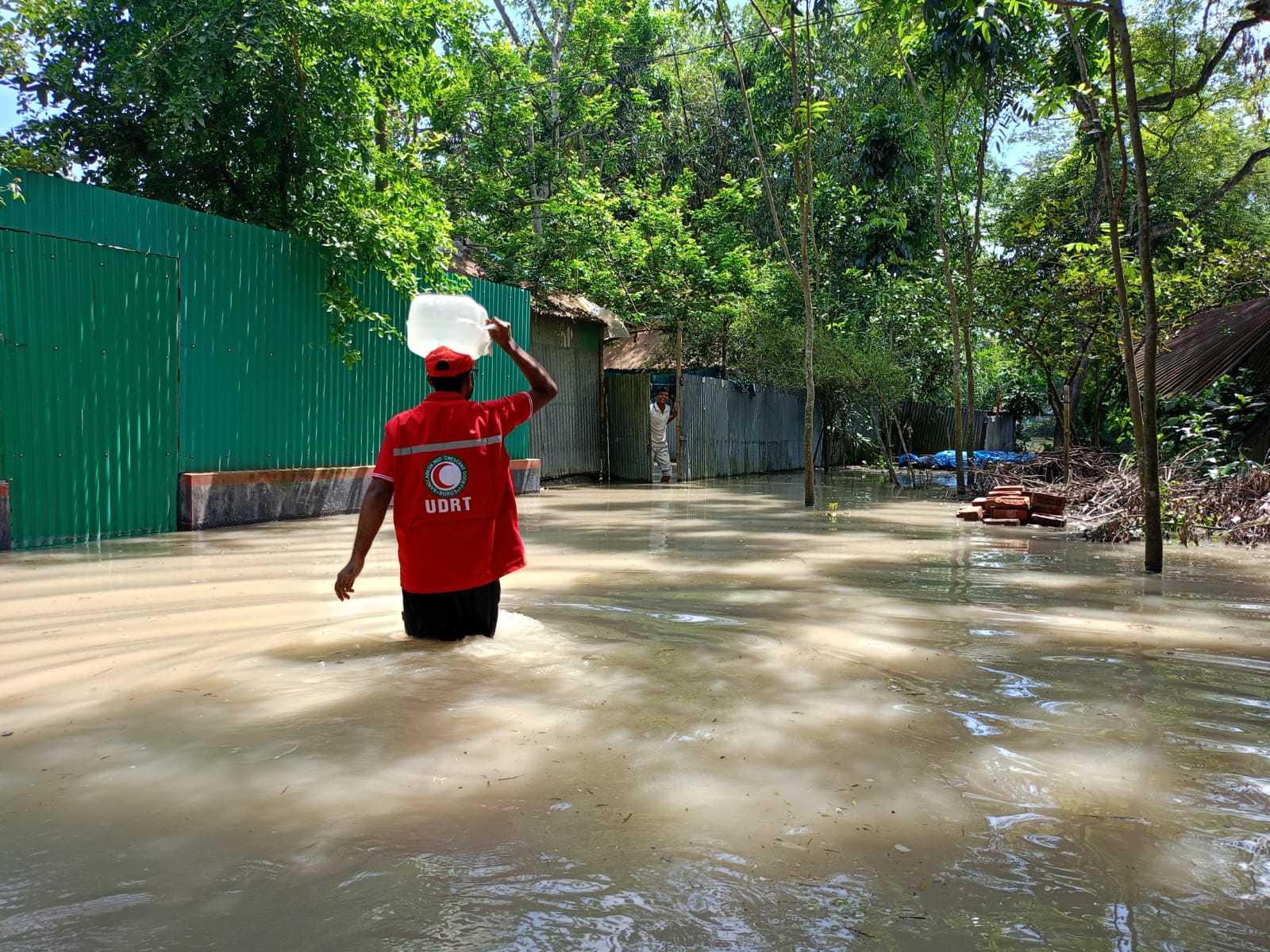Endline Evaluation of Integrated Flood Resilience Programme: Phase 2
Client: International Federation of Red Cross and Red Crescent Societies (IFRC)
Location: Katuli Union (Isapasha & Andar Manik) and Kakua Union (South Char Pouli & Goyla Hossain) in Sadar Upazila, Tangail District, Bangladesh
Duration: December 2023
Project Overview
The “Integrated Flood Resilience Programme: Phase 2” was a community-centric initiative led by the Bangladesh Red Crescent Society (BDRCS) in collaboration with IFRC. Spanning two years, this program focused on disaster risk reduction (DRR), climate change adaptation, water, sanitation, and hygiene (WASH), and community capacity development in flood-prone areas of the Tangail district. It engaged 8,330 direct beneficiaries and 16,000 indirect beneficiaries, including women, children, the elderly, and persons with disabilities. The program was funded by the Ministry of Foreign Affairs, Republic of Korea, and monitored by KOICA.
ART Lab conducted an endline evaluation to assess the program’s outcomes, sustainability, and overall impact, providing critical insights to guide future resilience-building initiatives.
Scope of Work
- Study Design & Methodology
- Designed a comprehensive evaluation framework aligned with OECD-DAC criteria (Relevance, Efficiency, Effectiveness, Impact, and Sustainability).
- Developed a mixed-methods research approach combining quantitative surveys and qualitative insights.
- Data Collection
- Administered household surveys to 400 respondents to gather socio-economic and disaster resilience data.
- Conducted 15 Key Informant Interviews (KIIs) with community leaders, government officials, and program representatives.
- Facilitated 8 Focus Group Discussions (FGDs) with diverse community groups, including women and individuals with disabilities.
- Performed 4 observational field visits to assess the on-ground implementation.
- Data Analysis & Reporting
- Analyzed quantitative data using Stata 17.0, comparing baseline and endline results.
- Conducted thematic analysis of qualitative data to identify program strengths, challenges, and areas for improvement.
- Prepared a detailed comparative analysis highlighting the program’s impact on key areas such as flood preparedness, access to WASH services, and livelihood resilience.
- Stakeholder Engagement
- Collaborated with BDRCS and IFRC staff to validate findings.
- Organized stakeholder feedback sessions to incorporate additional insights into the final report.
Key Outcomes
- Increased Flood Preparedness: Household flood preparedness rose from 49% at baseline to 59% at endline.
- Improved WASH Services: Households with access to improved latrine conditions increased from 22% to 48.8%.
- Enhanced Community Ownership: Community-driven disaster risk reduction strategies were significantly strengthened.
Deliverables
- Detailed Endline Evaluation Report: Documented key findings, lessons learned, and actionable recommendations for enhancing sustainability and community engagement.
- Strategic Insights: Provided evidence-based recommendations to improve program design and expand the reach of future initiatives.
Impact
The endline evaluation highlighted the program’s success in fostering resilience and improving the quality of life for vulnerable communities. ART Lab’s evaluation report served as a important resource for IFRC and BDRCS in planning scalable and sustainable interventions for disaster-prone areas.
Focal persons:
- Name: Asif Almas Shovon
- Title: Senior Officer, M&E
- Organization: Bangladesh Red Crescent Society (BDRCS)
- Phone: +8801755617687
- Email: asif.almas@bdrcs.org

Project Details
- Assignment type: Endline Study
- Client: International Federation of Red Cross and Red Crescent Societies (IFRC)
- Location: Sadar Upazila, Tangail District
- Year Of Complited: 2023
- Team Leader: Md. Maksud-Ul Hasan
- Data Analyst: Md. Zahirul Islam

